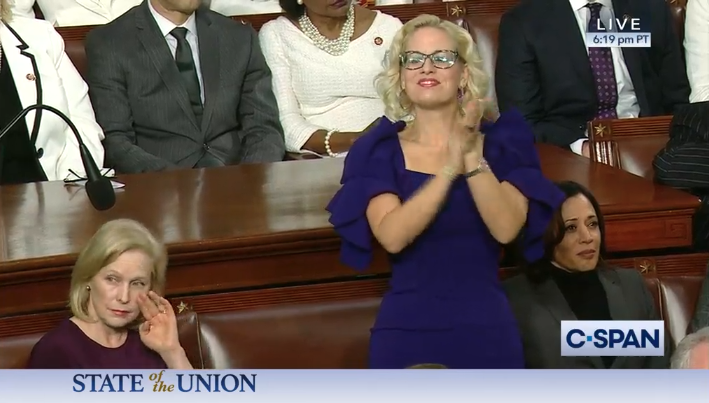Here’s What You Need To Know
Texas’ recent law restricting abortion is not just the latest flashpoint in the long running culture war. It is also the latest example of the growing pressures and expectations facing corporations in an increasingly divided America. Until recently, companies and coalitions avoided public policy fights outside of those that affected their “bottom line.” Now, apolitical organizations are expected to become political, even when it seems to make little sense to get involved. For activists, inaction on any particular policy is essentially an endorsement of it, so they demand companies of all shapes and sizes take stands on hotly contested issues ranging from abortion access to election law, and vaccine mandates to gender identity issues.
As more companies decamp for more business-friendly policy environments in Republican-led “red” states, they are realizing that conservative policy isn’t limited to economics. That’s leading to added pressure from highly motivated, well-organized, and well-funded activists unwilling to accept anything less than complete and enthusiastic alignment with their point of view. For public affairs professionals helping companies navigate these competing pressures, this new reality means trying to get along with the leaders who enact policies that are good for business while placating the activists whose agitation isn’t, or finding ways to speak up for important values without blowback from elected officials.
To understand how we got here and why such challenges are unlikely to go away anytime soon, here’s what you need to know.
Organizations Are Emigrating To “Red States” for Pro-Business Policies
RED STATES RISING: Many Republican-led states have enacted business-friendly policies to recruit top companies. These organizations are enticed by low tax rates, minimal regulations, and favorable labor laws, while their employees appreciate the quality of life and low cost of living. States like Texas, Tennessee, and Florida – all with no state income tax, affordable housing, and agreeable weather – have seen population booms and robust economic growth in recent years. Even tech organizations like Tesla, Oracle, and HP aren’t shying away from reaping the benefits of a conservative state like Texas, happy to intensify the blue dots in red states as they flock to cities like Austin. They’re also moving to communities like Atlanta and Salt Lake City, eager to take advantage of those states’ overall business climate while adding their own urban flair.
BLUE STATES BLEEDING: As America’s largest state and one of the world’s largest economies, California had lots to offer businesses. Yet its high tax rates, labor policies, abundant regulations, and other positions on a variety of issues are driving companies out. According to the Hoover Institution, CEOs rank California as having the country’s worst business environment. Years of these policies have led businesses to head to friendlier climes, including Florida, which “welcomed a net inflow of 4,811 ex-Californians between 2018 and 2019” alone, according to Patrick Gleason of Americans for Tax Reform. California is not alone, either. Like the snowbirds before them, New Yorkers are migrating south – this time for work. Big names like Goldman Sachs and Jet Blue are heading there, according to the Partnership for New York City, while financial firms like Elliott Management, Citadel Group, and Blackstone are moving tens, if not hundreds, of billions of dollars to the Sunshine State. Next door in New Jersey, 70 percent of CPAs have advised their clients to relocate elsewhere due to the region’s high cost of doing business, especially its tax rates.
Businesses Are Caught Between Competing Political Agendas
THE FACTS OF (POLITICAL) LIFE: While corporations appreciate the benefits of operating in Republican-led states, conservative policy isn’t limited to economics. For some companies, they must take “the good” (an attractive business climate) with what they see as “the bad” (socially conservative laws). For some industries, the delicate balancing act is worth it. But, as state governments take an increasingly active role in addressing causes of social concern for their constituents, that’s becoming more difficult.
ACTIVISTS EXPECT A RESPONSE: In a hyper-politicized, highly digitized world, companies have to worry more and more about activist pressures from both within their own organizations and outside of them. Every issue, no matter how ungermane to their day-to-day activities, could be a lightning rod for activists’ fury. And now more than ever, these activists have plenty of time, resources, and motivation to keep the pressure on. Unlike C-suites, activists aren’t concerned with how a state’s economic policies are creating jobs or profit. Instead, their goal is to make life as difficult as possible for organizations with the wrong political opinions or who choose not to speak out. It doesn’t matter if you’re Jeff Bezos, running one of the world’s largest companies that employs millions and adds trillions to the economy or a small business owner trying to make ends meet. You’re still expected to speak out on immigration policy or whatever politically charged debate has crossed activists’ radar at a given moment.
BUT ACTIONS CAN CAUSE BACKLASH: Even with mounting activist pressure, organizations can’t simply advocate against GOP policies in states where they operate without facing blowback. When companies like Delta took a public stand against a new voting reform law passed by Georgia Republicans, lawmakers retaliated against the Atlanta-based airline by voting to strip them of tax breaks worth tens of millions of dollars annually. Peach State GOPers responded similarly in 2018 when they pushed back on Delta dropping its National Rifle Association discount by killing its jet-fuel tax cut that had previously saved the company about $40 million. And as a populism-tinged skepticism of corporations takes hold of many Republicans, a growing number are unwilling to sit quiet when companies, pushed by activists, take antagonistic positions against them.
Public Affairs Professionals Need To Keep Two Very Different Sides Happy
BEND UNTIL THEY BREAK: From apologies to executive shakeups, companies will keep bending to activist demands to protect their standing with consumers or employees. The question is how much. CEOs feel they have a responsibility to their stakeholders to speak out on controversial issues, and their voices matter, since they’re still among the most trusted leaders to impact social change. In some cases, activist-driven corporate pressure has changed laws or thwarted enactment of new ones. When North Carolina moved to enact a transgender bathroom bill, Deutsche Bank and PayPal announced they would no longer expand in the state, while the NBA threatened to cancel its All Star Game plans. The state ultimately relented.
THREADING THE NEEDLE: For many corporate leaders, the goal is to do just enough to show they have the right social opinions without upsetting elected officials they need to maintain a positive economic environment. As Texas implements its new abortion law, even typically vocal companies, like SalesForce, are carefully balancing their response, offering employees relocation bonuses to work from California but avoiding broader comments on the law. Meanwhile, rideshare companies are providing legal coverage for contractors, and one, Lyft, is contributing a sizeable donation to Planned Parenthood. And some tech companies are even starting abortion funds for their employees. Yet few, if any, have any plans to push back against the law, and none of them have decided to leave Texas. Meanwhile, some of the state’s biggest corporations – Apple, AT&T, Dell – are staying quiet.
PUBLIC AFFAIRS JENGA: Getting caught amidst the culture wars poses unique and growing challenges for public affairs teams. They must protect their firms’ economic interests while placating an increasingly-activated consumer and employee base who are sometimes not aligned with Republican values on social issues – not to mention a narrative-driven national media that has little sympathy for conservative policy initiatives. To stay out of the fray – or engage in a thoughtful way – public affairs professionals need the right insights to understand who all their stakeholders are and how to anticipate their expectations when issue debates get heated.









